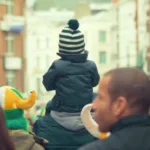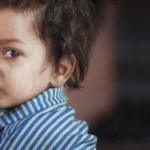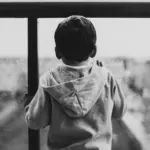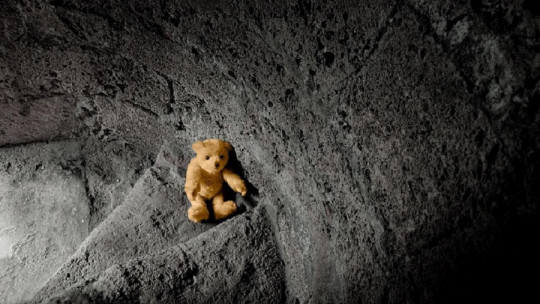
This article wants to be the beginning of a series of reflections on this scourge that plagues us and at the same time a tribute and dignity for all those people who have suffered in their flesh the pain, confusion and silence that surrounds this phenomenon so abundant in our lives. society, as unknown.
Indeed, It is estimated that one in five boys or girls (much more common in girls) has been subjected to sexual abuse in childhood., clearly predominating intrafamilial abuse. According to data from the ANAR foundation, the figure of the father still predominates among aggressors, with the number of cases where the aggressor is the male parent reaching 32%.
We reiterate that we do not want to refer to theoretical studies on the causes and consequences of sexual abuse in childhood, but rather we want to put ourselves in the role of the victim and reflect from our own skin. This series of articles is the result of years of therapy with people who have suffered abuse of all ages and wants to give voice and feeling to their experience and suffering.
That is why we will begin by reflecting on what I call “the fog”, inspired by the title of the book by Joan Montané and collaborators, “When we were dead”. Like so many other abuses suffered in childhood, the victim remembers what happened in a confused, hazy way or does not remember directly.
The “fog” of child abuse
The first act of respect with a person who has experienced sexual abuse in childhood is to understand, to understand that the first person who does not understand or understand is the victim themselves. And that “adult” and brainy phrases like, “she’s not even sure what happened!”, “why didn’t she tell it before?”, “children make up a lot of things!”… are the rubbish. definitive in the psychological and moral coffin in which the abused lives.
The first person who doubts, who blames himself for not having defended himself, for not telling, is the victim himself.. The memory, if there is one, I repeat, is foggy, where many times only the sensation is remembered, not so much the facts, and many other times, nothing is simply remembered.
As with other types of trauma, the person can and does forget the abuse. The brain, through an effective defense system, “dissociates” and “disconnects” from what happened in different ways.
On many occasions, they may remember the smell, atmosphere, or sounds of when the abuse occurred and be unable to remember the images of it, or conversely, be able to recognize the feelings experienced at that moment, but not the exact events that caused them. they provoked. We can also find cases where there is a clear memory of telling someone close what the abuser did to them, and yet not having any direct memory of living with them.
The child’s brain switches off to avoid pain. In the face of prolonged helplessness, the dorsal vagal system is activated, which sets in motion the process of immobilization and freezing, leading to an experience where behavior is dissociated from emotion. This dissociative mechanism allows you to continue surviving in contact with the abuser.
The child, depending on the age, with greater or lesser intensity and with greater or less confusion, is born to sexual and genital activation, at an age in which either it has not developed sufficiently biologically, or it does not have a certain full of what is happening. Let us keep in mind that the abuser is, almost always, a figure of descent, often an emotional one, for the boy or girl.
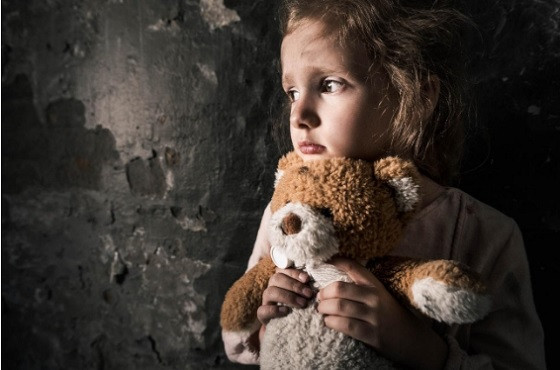
The problematic management of discomfort
Affection, bond, attachment, sexual activation, sensory overflow… everything becomes intertwined, all of this is very difficult to organize, and even more so when it seems not to happen and no one talks about it.
That person, the abuser, is supposedly protective and actually believes he loves the boy or girl., so it is understandable that that boy or girl does not want to lose that affection, that attachment, that bond; so that what happens “is not bad” although there are times when the victim comes to feel it as bad. Or, put another way, if it is something bad, not appropriate, it is not possible that the “bad” or “terrible” one is the adult figure. That is, the only plausible explanation for the child’s mind is that the “bad guy” or “the one who causes that evil” is himself.
In our extensive experience, in the absolute majority of child abuse cases, The victim, when he begins to glimpse the experience, perceives himself as guilty, as responsible..
To this we have to add the often disappointing responses from the mother, father or grandfather when the boy or girl tells what a member of the same family or who is emotionally close to them does to them. They tend to neglect themselves, ignore the message received, forget the crime they heard. Either because it is intolerable to accept the child’s pain, to look at oneself and accept the lack of vision, or because the good of the family institution predominates, and finally, one resorts to “childish things”, “it is impossible”… with which the victim internalizes the fact that telling what happens endangers the family structure or destroys a family member in the close social environment.
MJ Horowitz goes so far as to state that one of the reasons for the unconscious forgetting of memories of abuse has to do with nothing less than the “preservation of the love of others,” either of the person to whom it is told or of the person who perpetrates the abuse.
Let’s imagine the “haze” of confusion in which the boy or girl lives and that will be prolonged by adding magical, dysfunctional explanations. and always nullifying and undervaluing for the rest of their lives. We will continue to reflect and delve into this issue in future articles.
Author: Javier Elcarte, psychologist specializing in trauma. Founder and director of Vitaliza.

